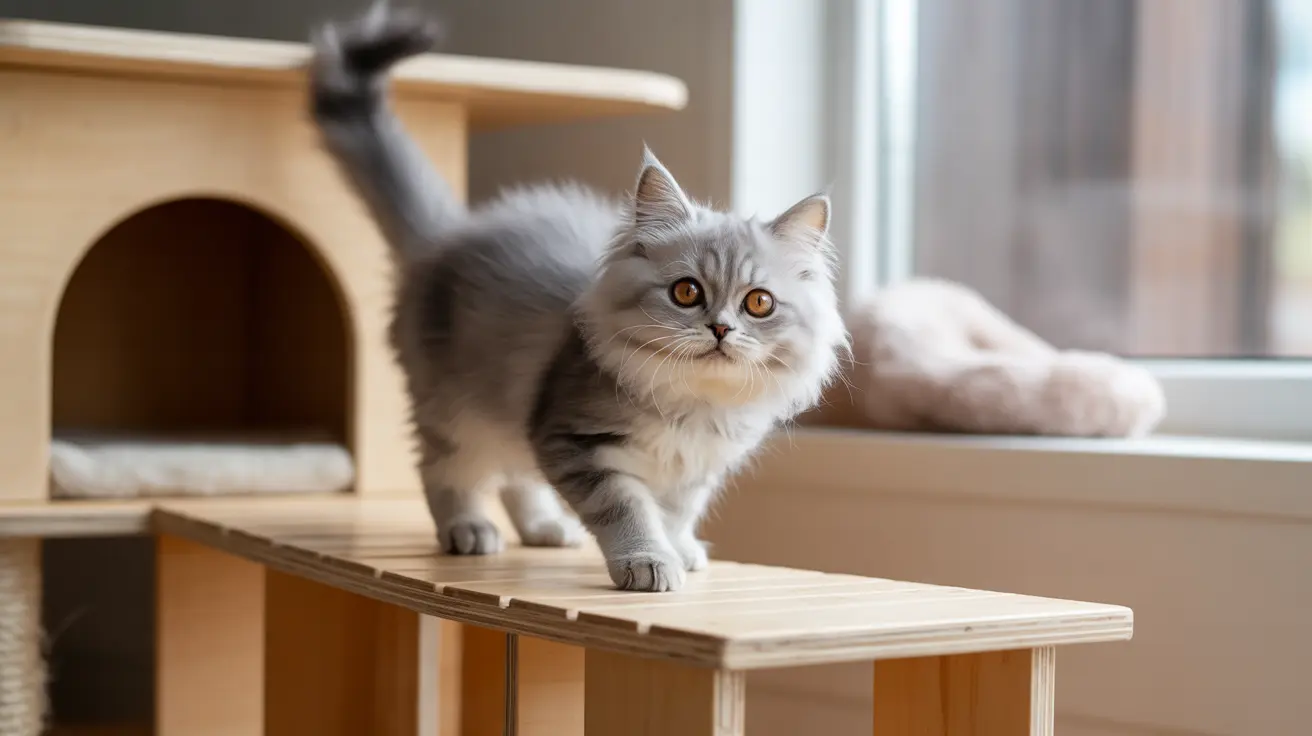Munchkin cats, known for their distinctively short legs caused by a genetic mutation, have become increasingly popular pets. However, their unique physical characteristics raise important questions about their health and quality of life. This comprehensive guide explores the health status of Munchkin cats, common medical concerns, and essential care requirements to help current and prospective owners make informed decisions.
Understanding the Munchkin Cat's Genetic Makeup
The signature short-legged appearance of Munchkin cats results from a genetic mutation causing feline dwarfism (pseudoachondroplasia). This autosomal dominant trait affects cartilage development, primarily impacting limb length and skeletal structure. Importantly, breeding two Munchkin cats together can be fatal to embryos if both carry the gene, which is why responsible breeders always pair Munchkin cats with normal-legged cats.
Life Expectancy and General Health Overview
Despite their unusual physical structure, Munchkin cats typically enjoy a lifespan of 12-15 years, comparable to other domestic cat breeds. While many Munchkins can lead healthy lives, their genetic mutation predisposes them to specific health challenges that require careful monitoring and management.
Common Health Challenges in Munchkin Cats
Musculoskeletal Issues
- Osteoarthritis develops more frequently due to unusual weight distribution
- Lordosis (excessive spinal curvature) can cause chronic pain
- Limited mobility may affect jumping and climbing abilities
- Joint stress can lead to early-onset arthritis
Other Health Considerations
- Pectus excavatum (hollow chest)
- Increased risk of obesity due to restricted mobility
- Potential urinary tract issues
- Higher susceptibility to hyperthyroidism
- Progressive retinal atrophy in some cases
Essential Care Guidelines
- Regular veterinary check-ups to monitor joint health
- Strict weight management to prevent excess strain on joints
- Modified environment with ramps and accessible surfaces
- Appropriate exercise that doesn't overtax their unique physique
- High-quality nutrition to support bone and joint health
Preventive Health Measures
- Monitor mobility changes and signs of discomfort
- Provide joint supplements as recommended by veterinarians
- Create a cat-friendly environment with easy access to necessities
- Maintain regular grooming to detect any physical changes early
- Schedule bi-annual veterinary wellness checks
Frequently Asked Questions
Are Munchkin cats generally healthy despite their short legs?
While many Munchkin cats can live healthy lives, their genetic mutation does predispose them to certain health issues, particularly affecting their joints and spine. Regular veterinary care and proper management can help maintain their health.
What common health problems should I watch for in a Munchkin cat?
Key health concerns include osteoarthritis, lordosis (spinal curvature), mobility issues, potential obesity, and in some cases, heart or lung problems due to chest deformities. Regular monitoring for these conditions is essential.
How long do Munchkin cats typically live compared to other breeds?
Munchkin cats generally have a life expectancy of 12-15 years, which is comparable to other domestic cat breeds when properly cared for.
Can obesity worsen joint or spine issues in Munchkin cats?
Yes, excess weight can significantly exacerbate joint and spine problems in Munchkin cats. Maintaining a healthy weight is crucial for their overall well-being and mobility.
What steps can I take to ensure my Munchkin cat stays healthy and pain-free?
Essential steps include regular veterinary check-ups, maintaining proper weight, providing appropriate exercise, creating an accessible environment, and watching for signs of discomfort or mobility changes.
Conclusion
While Munchkin cats can make loving and energetic companions, their unique genetic makeup requires special attention to health and care needs. Understanding and addressing their potential health challenges through proper preventive care and management is crucial for ensuring these distinctive felines lead comfortable, fulfilling lives. If you're considering adding a Munchkin cat to your family, working closely with reputable breeders and experienced veterinarians will help ensure the best possible health outcomes for your pet.






